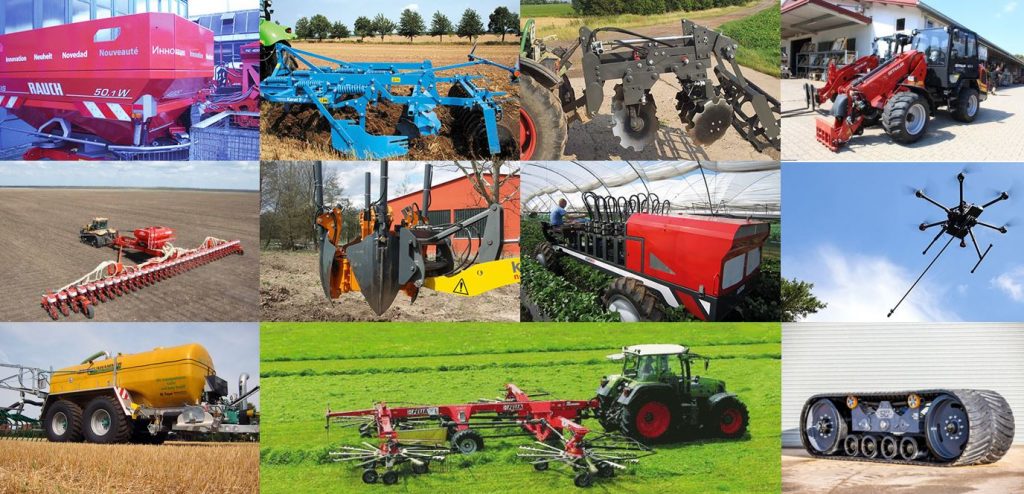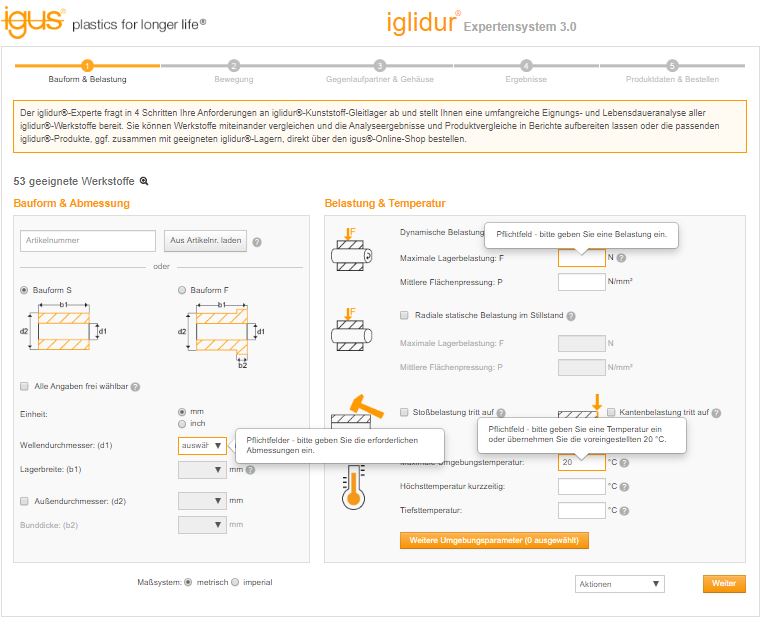What is the best plain bearing for agricultural machinery?
Yvan Cao | October 21, 2020
There must be an answer to this question. After all, there are a limited number of “best Italian restaurants”, “best frozen pizzas” and “best TV series”. And we haven’t even got to narrowing it down. The best Italian restaurant in Bonn? Or in the whole world? The question of the best plain bearing for farm machines is like that. Ultimately, there is no “best of” anything for anything. You know that as well as I do. But the problem keeps cropping up anyway. Who should I order my pizza from? Should I bake one myself? Or should I go out to eat? And when all is said and done, I will wonder whether I should have just fixed the goulash recipe I’ve made a million times. You may be wondering what all this has to do with plain bearings. An awful lot.
The first question has to be: “What do I need this for?”
Let’s get away from cooking examples. Before we can ask which plain bearing is best for agricultural machinery, it may be helpful to specify the question a bit further. What do we mean by “agricultural machinery”? The plain bearing in a combine cockpit joystick is part of an agricultural machine, strictly speaking. But its technical requirements would be very different from those of a sowing coulter depth limiter. And there are many varieties of this type of differentiation: pressure rollers, parallelograms, dosing devices, and additional assemblies such as track looseners, track markers, folding mechanisms, and so on. Everywhere a variety of forces are being applied to plain bearings, which have a wide range of motion profiles and varying requirements for sealing against dirt and moisture.
And that is just sowing coulter bearing points. A tractor is an entirely different machine. One has gearboxes and power lifts, and the other has various adjustable seats and armrests, control elements, and displays. The universe of applications and requirements is enormous.

The selection of areas of application for plain bearings in farm machines is enormous (source: igus)
Is there a “best” plain bearing for agricultural machinery?
Of course it would be great if there were simply one plain bearing that could do everything, or at least most things. But is there any food that you always have a taste for? French fries and ice cream, maybe? But they generally cause stomach aches and weight gain, so they are not always helpful. But still, before we eat something, we ask ourselves, “What do I need this for right now?” At least subconsciously. If I’m out and about and want to grab something to eat, French fries are fine. On a leisurely Sunday, I might prefer goulash. And for a healthy start to the day, low-sugar cereal is better.
In the technical world, this means that the most important use parameters should be defined:
- How great is the force applied to the plain bearing?
- What is the motion profile, and how fast are the shaft and the plain bearing moving in relation to one another?
- What shaft will be used as a counter partner?
- How high is the ambient temperature?
- Are there other environmental conditions, such as grime, moisture or weathering?
- How great is the necessary running performance?
A path through the jungle of choices
Just as there are many types of food and many recipes for each one, there are countless varieties of plain bearings. Just as there are hundreds of good and mediocre recipes for goulash, the product ranges of manufacturers specialising in plastic bearings vary a great deal: with reinforcing fibres, with Teflon, without silicone, chemical-resistant, heavy duty, and so on. But when should I use which bearing?
The problem with plain bearings is that, while the technical literature delivers various approaches to calculating the durability of various plain bearings, they turn out to be just a rough approximation. Many influencing factors, such as dirt ingress, shaft surfaces and materials, and shock and impacts are very difficult or impossible to consider, but have a dramatic effect on the plain bearing’s service life.
What good does the best goulash recipe do me if I don’t like paprika or meat? What good do French fries do me if I am gluten intolerant? So it’s not that easy.

The iglidur expert system enables you to calculate and compare the service life of different plain bearings in your agricultural machinery in no time (source: igus)
Individual consultation is key
One possibility is comparing data sheets. Unfortunately, even data sheets do not reflect the whole truth and reveal little about the running performance to be expected in practice. Another option for finding the right plain bearing is expert systems. They use data sheet data or calculation formulae to determine the best product. igus offers the iglidur service life calculator, a program that uses empirically determined, interpolated wear data from more than 100,000 igus test laboratory wear tests to determine the longest service life.
But neither product documentation nor the expert system can replace individual consultation. Our experienced, expert application consultants are available to help you at any time. We work with you to determine the individual requirements of your plain bearing for agricultural machinery and systems, and develop the most cost-effective, best-performing solution. Free of charge, no strings attached.

